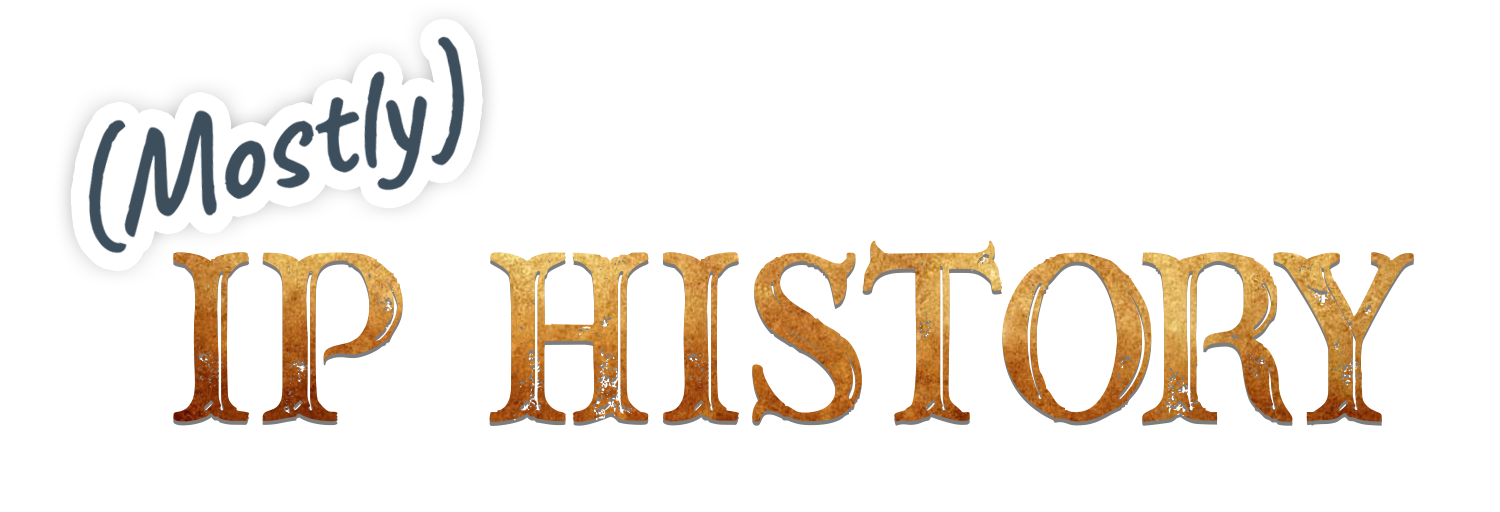Video Post: The 1984 Congressional Copyright and Technology Symposium
We tend to assume that past policymakers, especially in the copyright arena, were ignorant of the possibilities of a technological future. But I’ve found that many times Congress and other policymakers were better informed than we tend to assume. Take for instance the hearings on CONTU, or the Copyright Office being shown how the web worked while it was still in its infancy. Another example is the Congressional Copyright and Technology Seminar, held in February 1984, where members of Congress and other policymakers were educated by a group of technologists on what they saw as the coming future of technology and how it would relate to IP law. This symposium had been preceded by a hearing on Copyright and Technological Change in July of 1983.
The proceedings of this conference have long been available in transcript form, but I’ve been able to find the video, digitized by the Library of Congress Motion Picture Division, and I’m pleased to share it below. Note that the was originally on 16 U-Matic videocassettes, I’ve edited the videos together myself, so there may be occasional jumps (you can refer to the transcript for gaps).
Day 1 – February 4, 1984
Day 2 – February 5, 1984
A schedule of the event’s proceedings follows:
Day I: Saturday, February 4, 1984
8:00-9:00, Coral Springs-Plantation Room
Buffet breakfast.
9:00-9:15, Amphitheater
Opening of the symposium — Senator Charles McC. Mathias and Representative Robert W. Kastenmeier.
9:15-9:20, Amphitheater
Introductory remarks — Register of Copyrights David Ladd and Symposium Rapporteur Paul Goldstein, Stanford Law School.
9:20-10:00
Overview — “Electronic Technology for the Policy Maker,” Haines Gaffner, president, LINK Resources, Corp.
10:00-12:00, Board Room 1, and Meeting Rooms D&E [with coffee available during session]
Applications: present and future —Sessions will include equipment demonstrations and opportunities for hands-on use of a variety of equipment, systems and services representative of the following technologies:
Broadcast, cable, and satellite transmission systems: to demonstrate projected capabilities of broadcast, cable, and satellite technologies, including two-way interaction and satellite services.
Home computers and electronic entertainment centers: to demonstrate the future integration of computer and communications systems to provide capabilities to use copyright works in new ways.
4:00-7:00, Board Room 1 and Meeting Rooms D&E
Applications —Continued.
Educational technology: Application of interactive computer-aided instruction, electronic libraries, and video technology to modern education.
Electronic publishing: New Systems for specialized publication, videotext, teletext, viewdata, etc.
Optical disks and automated libraries: Library of Congress System.
7:30-8:30, Grand Ballroom C
Reception.
8:30, Grand Ballroom D
Dinner — “The Long-Range Future Impact of Computer and Communications Technology on Society”: Martin Greenberger, IBM Professor of Computer and Information Systems, UCLA. Author of numerous books on science policy including “Computers, Communications and The Public Interest.”
DAY II: SUNDAY, FEBRUARY 5, 1984
8:00-9:00, Bonaventure A
Buffet breakfast.
A series of panel discussions on the future impact of technology on intellectual property.
9:00-10:15, Amphitheater [with coffee available during session]
Panel discussion I: information processing in the future; Moderator: Joe B. Wyatt, Chancellor, Vanderbilt University; Panelists: Christopher Burns, Information Consultant IIA; Donald Devine, Chief Executive Officer, Trilog Inc. ADAPSCO Software Protection Committee; E. C. Mclrvine, Manager of Advanced Planning, XEROX Corp.; Frederick Weingarten, Office of Technology Assessment
10:15-11:45, Amphitheater
Panel discussion II: publishing, libraries, and education; Moderator: Toni Carbo Bearman, Executive Director, National Commission on Libraries and Information Science; Panelists: Hon. Stephen Breyer, Judge, U.S. Court of Appeals for the First Circuit; Karen Hunter, Planning Officer, Elsevier Science Publishers, B.V.; Joseph P. Lash, Author; Jay Lucker, Director of Libraries, Massachusetts Institute of Technology; Warren Spurlin, Deputy Superintendent, The School Board of Sarasota County, Sarasota, Florida.
3:30-5:00, Amphitheater
Panel discussion III: mass media distribution: the future; Moderator: Professor Harvey Zuckman, Director of the Communications Law Institute, Columbus School of Law at the Catholic University of America; Panelists: Bryan L. Burns, Director of Broadcasting, Office of the Commissioner of Baseball; Mel Harris, President, Paramount Video; Gustave M. Hauser, Chairman and Chief Executive Officer, Hauser Communications; William Lilley, III, Vice President, Corporate Affairs, CBS, Inc.; Clyde Washburn, Chief Scientist, Earth Terminals, Inc.
5:00-6:30, Amphitheater
Panel discussion IV: administration of rights in copyrighted works in the new technologies; Moderator: Professor Alan Latman, New York University Law School, and member of Cowan, Liebowitz, and Latman; Panelists: Thomas C. Brennan, Chairman, Copyright Royalty Tribunal; Harlan Cleveland, Director of the Hubert H. Humphrey Institute of Public Affairs, University of Minnesota; Alexander Hoffman, Senior Vice President, Doubleday & Co.; Professor John Kernochan, Columbia University Law School; John C. Taylor III, Chairman of the Carnegie Corporation and member of Paul, Weiss, Rifkind, Wharton & Garrison; George Willoughby, Vice President and General Counsel, King Broadcasting.
6:30-7:00, Amphitheater
Rapporteur’s summation: Professor Paul Goldstein, Stanford Law School.
7:30-8:15, Atrium area
Reception.
8:30, Global Ballroom B
Dinner — “Trends, Developments, and Projections: Frederick Pohl, prize winning science fiction author and editor





